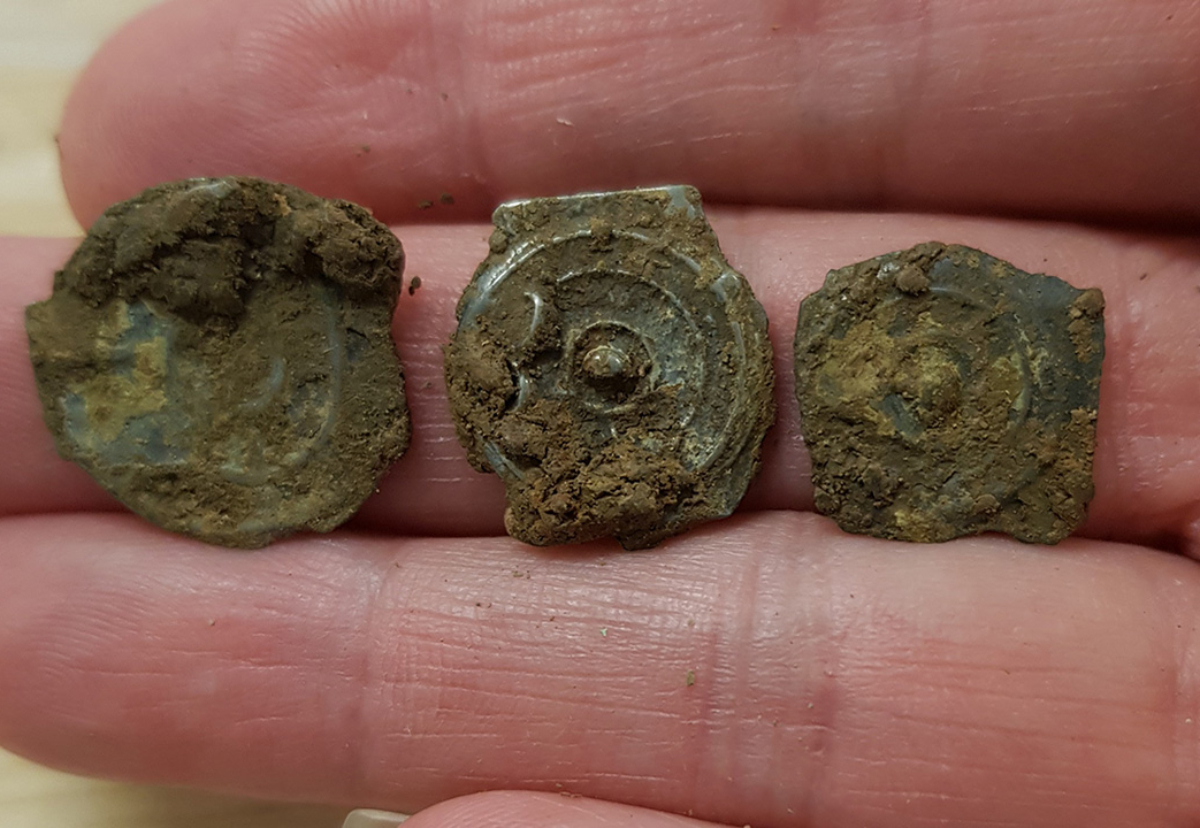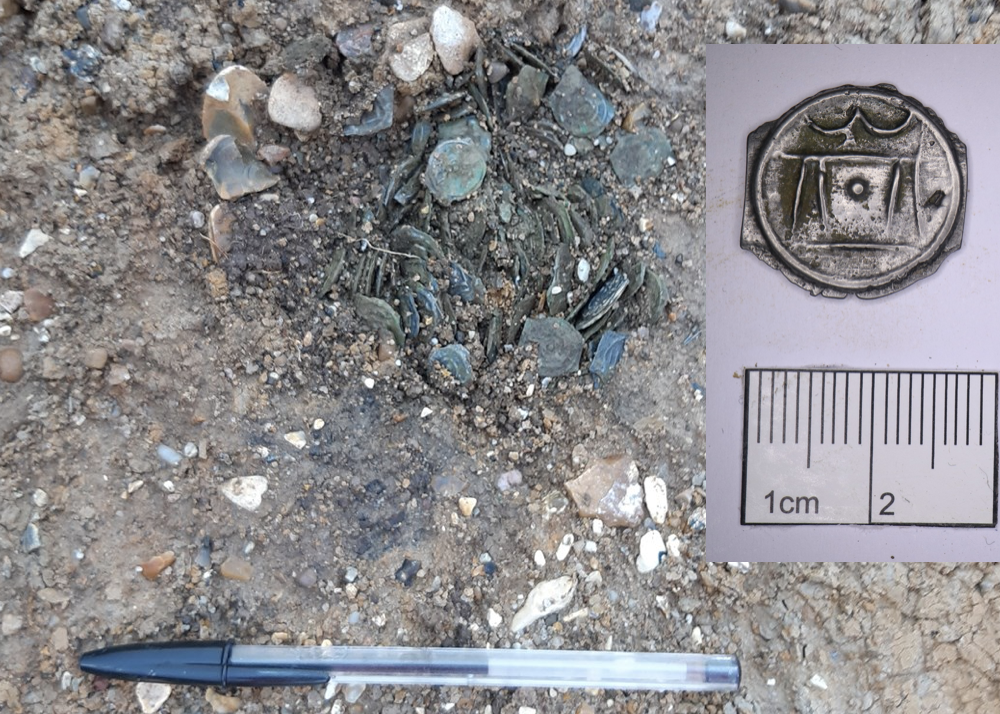Costain archaeologists have made a once-in-a-lifetime discovery on a HS2 project site that metal detecting treasure hunters can only dream about.

Potin coins from the Iron Age Hillingdon hoard
A rare hoard of over 300 Iron Age coins, dating back to the 1st century BC, was discovered at the Hillingdon project site in West London after storm water revealed the stash.
The Costain Skanska joint venture site was undergoing archaeological excavation when the hoard of early coins known as potins was uncovered. The term potin refers to the base metal silver-like alloy used in coins and is typically a mixture of copper, tin and lead.
Costain’s Emma Tetlow, working as Historic Environment Lead for HS2’s main works contractor Skanska Costain Strabag joint venture said: “We were coming to the end of our archaeological work on the site when we found a patch of soil that was a very different colour from what it would be expected to be.
“The patch of soil was dark greeny-blue which suggests oxidized metal, and when we checked more closely, we could see loosely packed metal discs. This is a once in a lifetime find and allowed us to expand our knowledge of what life could have been like in Hillingdon many centuries ago.”

Known as the ‘Hillingdon hoard’, the find dates back to a period of change as the Romans began to establish themselves in Britain.
The potins are based on coins struck in Marseille, France, about 2,175 years ago. The use of these early coins spread across northern Europe.
In England, their use was commonly linked to Kent, Essex or Hertfordshire.
The value of the hoard has not yet been determined, nor has its future location.
Under the Treasure Act, the Coroner will determine whether the find constitutes ‘treasure’ and if a museum wishes to acquire the potins and recommendations for the find will be made and a potential value placed upon it.
The hoard was found during HS2 works on land that was occupied temporarily. HS2 is not making any claim on the hoard and under the Treasure Act archaeologists are not entitled to a share of any reward.
Duncan Wilson, Historic England Chief Executive, said: “They say money talks so what can this unexpected discovery tell us?
“It takes us back to the tumultuous time of Julius Caesar’s conquest of Gaul. Reaching Britain in 55 and 54 BC he observed the locals using ‘bronze’ coins, an innovation they had adopted not long before through cross-channel migration and trade.”



